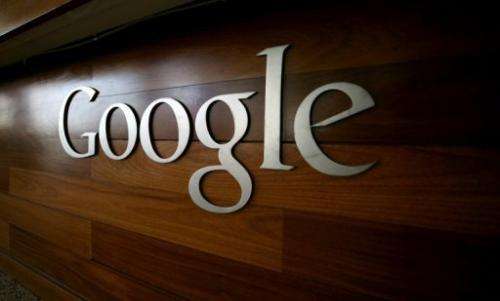US regulators are likely to conclude a lengthy antitrust probe of Google's dominance of Internet searches with a voluntary settlement, news reports said Monday.
US regulators are likely to conclude a lengthy antitrust probe of Google's dominance of Internet searches with a voluntary settlement, news reports said Monday.
The Wall Street Journal said Google was likely to agree to a settlement with the Federal Trade Commission that calls for unspecified changes in how it handles search queries, but would stop short of signing a consent decree that could be enforced by a court.
The Washington Post also reported that a settlement was likely this week, saying it would fall well short of what Google's rivals had sought.
The online news site Politico reported that the FTC did not have the votes to bring an enforcement action against Google, but that the settlement would include new practices on the use of "snippets" of user reviews from companies such as Yelp and TripAdvisor, companies which have said Google uses such content without permission.
Politico said Google will also pledge to make it easier for advertisers to buy ad space on its search engine and to move their ad campaigns to competing sites.
The reports said Google may agree to a separate consent decree to limit the use of patents, including those acquired when it bought Motorola Mobility, to curb competition.
These settlements would not necessarily affect a separate review of Google's practices in the European Union, or by several US states, which would be able to bring their own enforcement actions.
Critics point out that Google controls some 70 percent of the Internet search market—and the advertising that goes along with it—and may exert even more power in the mobile sector by controlling the Android operating system used on two-thirds of smartphones.
Google has been accused of "scraping" content from other services like travel and restaurant reviews while keeping consumers on its own sites.
It is also under fire for allegedly promoting its own services—including travel, restaurant reviews and YouTube videos—in its search results.
European Union competition watchdogs began an investigation into Google in 2010 and the FTC opened its own probe into the company's lucrative search and advertising business in June 2011.
A Google spokesperson, asked about the reports, said, "We continue to work cooperatively with the Federal Trade Commission and are happy to answer any questions they may have."
(c) 2012 AFP























